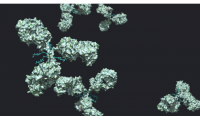-
Sarepta enjoys early sales ramp for DMD gene therapy, maintains confidence in label expansion
- Source: drugdu
- 101
- November 4, 2023
-
BioMarin’s longtime CEO Jean-Jacques Bienaimé hands the reins to Genentech’s Alexander Hardy
- Source: drugdu
- 104
- November 3, 2023
-
AI may help identify potential gonorrhea vaccine proteins
- Source: drugdu
- 183
- November 2, 2023
-
Sarepta Fails Confirmatory Trial for DMD Therapy, Still Eyes Label Expansion
- Source: drugdu
- 117
- November 2, 2023
-
Sarepta’s Elevidys fails on primary endpoint, but executives see path to wider DMD approval anyway
- Source: drugdu
- 99
- November 2, 2023
-
Daiichi Sankyo, Merck Set to Collaborate on Three DXd Antibody-Drug Conjugates
- Source: drugdu
- 138
- October 27, 2023
-
Disruptors of This Industry Are Already in It
- Source: drugdu
- 112
- October 27, 2023
-
Surgery to straighten a crooked septum more effective than nasal sprays, trial suggests
- Source: drugdu
- 145
- October 20, 2023
-
Air pollution linked to increased breast cancer risk in women
- Source: drugdu
- 207
- October 19, 2023
-
High-flying Novo Nordisk again dials up its 2023 sales and profit expectations
- Source: drugdu
- 196
- October 17, 2023
your submission has already been received.
OK
Subscribe
Please enter a valid Email address!
Submit
The most relevant industry news & insight will be sent to you every two weeks.













